This article was originally published by Joshua Krause at Tess Pennington’s ReadyNutrition.com
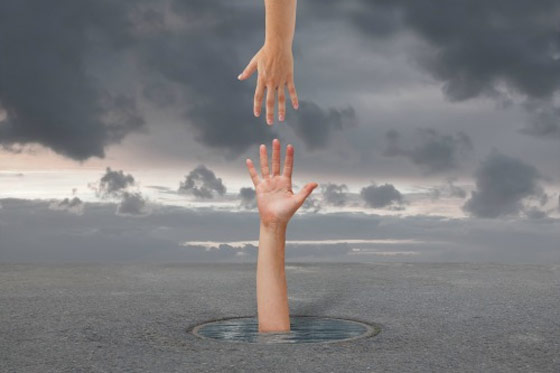
Of course, they’re not crazy for trying to be prepared. We turn on the news or check our social media feeds every night, and what do we see? A cavalcade of horror. Terrorist attacks, mob violence, selfishness, ignorance, and flippant threats of war. What would really be crazy, is to see all of that on a daily basis and not want to be prepared.
However, there’s a flip-side to these behaviors that everyone, prepper or not, needs to understand. On the one hand; yes, we’re an incredibly violent and cruel species that is capable of mind-boggling horrors when we’re trying to survive. Hell, some of the things we do when we aren’t desperate are still nightmare inducing. But what most people forget is that in our darkest moments, we’re capable of immeasurable acts of compassion and altruism.
That’s the unique duality of our species; and it’s a duality that totally separates us from every other creature on this planet. When we’re bad, we’re worse than any animal. That’s why we prep. But at our best, people are capable of awe-inspiring acts of kindness. Your average individual human is capable of more mercy and selflessness than the members of most entire species put together.
10 Acts of Human Kindness to Restore Your Faith in Humanity
And in case you’ve forgotten that fact, I have a few reminders for you. Below are ten examples of people who were utterly selfless in the midst of terrible tragedies and disasters.
Ken Bellau

Image courtesy of People.com
Hurricane Katrina still haunts the people of New Orleans. To this day much of the city is still in ruins, and by most estimates, between 1,200 and 1,800 people died after the levees broke. However, the death toll might have been significantly higher if not for the efforts of one man.
Ken Bellau is a 10th generation New Orleans resident who took it upon himself to rescue his stranded neighbors. He arrived in the city from an overseas trip just after the storm hit. After commandeering an abandoned fishing boat, he spent three weeks searching for people and pets, and giving them rides to higher ground. For much of this ordeal Ken was working alone. Aside from the typical hazards that you’d expect someone to deal with in these circumstances, he faced threats from criminals who wanted to take his boat, and dodged bullets from suspicious residents who thought he was a looter.
Eventually Ken made contact with the National Guard. Between his boat and his knowledge of the area, he proved to be a valuable asset for the Guards’ relief effort, and went on numerous rescue missions with them. It’s estimated that his efforts helped save at least 400 people.
Reverend Bennie Newton
Over the past couple of years there have been many notable riots in the United States, but they all pale in comparison to the 1992 Rodney King riots in Los Angeles. It’s estimated that between April and May of 1992, 55 people were killed in these riots, and over 2,000 were injured. It was so bad that order wasn’t restored until the Marines and the National Guard showed up.
Amid that chaos, was a young Guatemalan immigrant and self-employed construction worker by the name of Fidel Lopez. On April 29th, he was pulled out of his truck by several rioters, who proceeded to beat him to within an inch of his life. Once unconscious, the thugs attempted to slice off one of his ears, spray painted his torso and genitals black, and doused him in gasoline.
What happened next was unexpected to say the least. A priest by the name of Reverend Newton arrived on the scene after hearing about some of the violence being carried out in the area. He waded through the violent mob and shielded Lopez. Clad in a priest’s garb and carrying a bible in one hand, he shouted to the crowd “kill him, and you’ll have to kill me, too!” Surprisingly, the mob backed off. The reverend carried Lopez to his truck, and drove him to the hospital.
The Canadian Town of Gander
9/11 is a moment in history that every American vividly remembers. We remember the planes exploding, the desperate office workers plunging to their deaths, the towers falling, and the dust caked pedestrians fleeing for their lives. Unfortunately, what we don’t remember is the boundless hospitality of one small Canadian town in Newfoundland.
After the attack, all civilian air traffic over the United States and Canada was ordered to be grounded. 38 planes carrying nearly 7,000 people from around the world were forced to land at the airport outside of Gander, a town of 10,000 people. Obviously, a town of that size didn’t have nearly enough hotel rooms to house all of those people.
So the people of Gander and other nearby towns simply opened their doors to these complete strangers and housed them. The locals ignored the advice of the police, who feared that some of the stranded passengers could be terrorists. Nearly every church, school, and restaurant pitched in by housing or feeding them, often free of charge. Local bus drivers ended a strike to help drive these strangers around, and pharmacies in the town provided medication, also free of charge. This went on for four days until the airspace was reopened, and everyone went home with fond memories of Canadian hospitality.
Liviu Librescu
 Liviu Librescu was a 76-year-old Romanian-American scientist, aeronautical engineer, and professor at Virginia Tech, and he was no stranger to the horrors that his fellow humans were capable of. That’s because he was a Jew who had survived the Holocaust as a child. In his final moments, he came face to face with evil one last time, and didn’t hesitate to sacrifice himself for the lives of everyone around him.
Liviu Librescu was a 76-year-old Romanian-American scientist, aeronautical engineer, and professor at Virginia Tech, and he was no stranger to the horrors that his fellow humans were capable of. That’s because he was a Jew who had survived the Holocaust as a child. In his final moments, he came face to face with evil one last time, and didn’t hesitate to sacrifice himself for the lives of everyone around him.
On April 16th, 2007, a student of Virginia Tech by the name of Seung-Hui Cho entered the campus with two pistols and opened fire, eventually killing 33 people. When he arrived at Librescu’s classroom, the professor and two other students named Zach Petkewicz and Derek O’Dell, blocked the doors so that the gunman couldn’t get in. This gave all but one of his students enough time to flee the classroom through a nearby window, before Cho shot and killed them.
Hugh Thompson

The Vietnam War is widely considered to be the darkest chapter in American military history, and by far its darkest moment was the My Lai massacre. On March 16th, 1968, US soldiers with the 23rd Infantry Division, 11th brigade, massacred between 347 and 504 unarmed civilians in South Vietnam. If you can believe it, the massacre could have been far worse if it wasn’t halted by one man.
Hugh Thompson was an Army helicopter pilot who realized what was happening early on in the massacre, after a seeing several dead civilians from the air during a reconnaissance mission. He landed his helicopter twice to investigate the dead, before realizing that it was American soldiers who were responsible for the killings. After failing to talk sense into a commander who had ordered the massacre, he spent the rest of the day directing and evacuating civilians away from the carnage, and at one point even threatened to open fire on US soldiers who were about to kill several civilians. After evacuating a wounded child, he reported the incident to his superiors, who ordered troops on the ground to stop the killings.
For his efforts, Thompson was shunned by his peers in the military for many years. In 1969 he was called to testify in Congress about the incident, and was chastised by Congressmen with the House Armed Services Committee, who felt that he should have been court martialed for threatening to open fire on American troops. It wouldn’t be until 30 years later that he was awarded a medal for his part in ending the massacre.
Father Thomas Byles
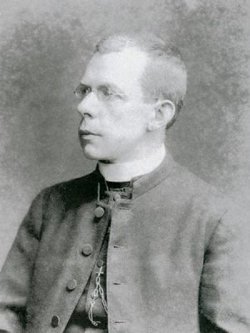 The sinking of the Titanic is a testament to that fact that in previous generations, altruism was a far more common trait. As the ship went down, hundreds of men insisted on staying aboard, and letting as many women and children as possible get on the few remaining life boats. It would be difficult to single out any of the heroic souls that went down with that ship.
The sinking of the Titanic is a testament to that fact that in previous generations, altruism was a far more common trait. As the ship went down, hundreds of men insisted on staying aboard, and letting as many women and children as possible get on the few remaining life boats. It would be difficult to single out any of the heroic souls that went down with that ship.
But if you had to, a good choice would be Father Thomas Byles. The Catholic priest was on his way to New York to preside over his brother’s wedding when the Titanic struck an iceberg. As the crowds of desperate passengers swelled toward the lifeboats, he refused several invitations to leave the ship. Instead he helped other passengers find lifeboats, and stayed on board with a hundred trapped individuals. He prayed with them, heard their confessions, and gave them their last rites until the ship finally sank. His body was never recovered. Byles has since been recommended for sainthood by the Catholic Church.
The Choctaw Nation

The Cork Statue that pays tribute to the Choctaw Tribe’s generosity during the Irish Famine.
The Irish famine was one of the most devastating disasters of the 19th century. Within seven years, a million people starved to death and another million emigrated. Millions more would flee the country in the decades that followed. To give you an idea of how devastating it was, the population of Ireland still hasn’t recovered from the famine.
Amid this tragedy, countless organizations in the United States collected donations and sent them to Ireland to help alleviate the crisis. But perhaps none were as impressive as the $170 that was raised by members of the Choctaw tribe of Native Americans, and sent to a famine relief organization. That may not sound like much, but adjusted for inflation it amounts to thousands of dollars.
Still, why was their donation so impressive? At the time, the Choctaw tribe were living in a reservation in Oklahoma. 16 years earlier in 1830, they had been forced from their homes and sent on the trail of tears. Half of the 21,000 Choctaws who embarked on the journey died. It’s safe to say that by 1847 they probably weren’t in much better shape financially speaking, and yet they still felt compelled to raise what little funds they had for the relief effort. That’s because they felt an affinity for the Irish, who like the Choctaw, had also enduring starvation, as well as cultural suppression by their government. The Choctaw relief effort has since been commemorated on multiple occasions in Ireland.
The Institute of Plant Industry

Image source https://cdn.rbth.com
Don’t let the innocuous title fool you. If nothing you read before was able to restore your faith in humanity, this story will.
The Institute of Plant Industry was a Soviet research center, and was once the largest seed bank on Earth. It was home to nearly 400,000 seeds and other plant samples that had been painstakingly collected from around the world. The mission of the institute, was to develop new plant strains that would alleviate hunger worldwide.
Unfortunately, the institute was located in the city of Leningrad during World War Two. In case you’re not familiar with what occurred there, what happened to Leningrad during the war was downright apocalyptic. For nearly two and half years the city was blockaded by a German siege, which led to the deaths of 1.5 million civilians and soldiers. The siege of Leningrad has been called the most destructive event to ever occur in a modern city, and the most deadly siege in human history. The city became a hell on earth, where starvation and predatory cannibalism were rampant.
So what do you think a dozen scientists holed up in that research center would do? I can tell you what normal, sane people would do. They’d probably give up their scientific mission, and begin consuming the treasure trove of edible seeds that were stored there. Certainly there were enough seeds to keep them fed for at least a few months, if not the entire duration of the siege.
Instead, the scientists refused to eat their samples. They guarded the seeds throughout the siege and kept their seed bank a secret, knowing what would happen if any of the starving residents of the city found out about the institute. They watched over the seed bank in shifts, usually two or more at a time to ensure that no scientist was left alone with the seeds, and secretly smuggled samples out of the city. It’s believed that none of the samples were tampered with by the scientists. In the end, nine of the them starved to death while surrounded by perfectly edible food, in an effort to alleviate world hunger for future generations.
Takeshi Miura and Miki Endo
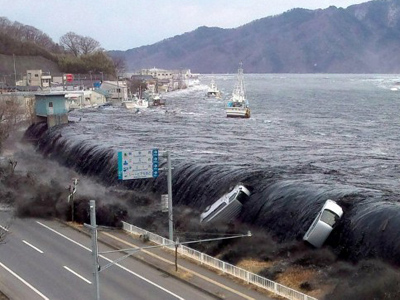
Image courtesy of rt.com
These days, when most people hear about the Fukushima disaster, they tend to think about the TEPCO nuclear power plant that was destroyed by the tsunami. To this day the news still periodically reports on the situation at the power plant. However, most people outside of Japan have forgotten about the impressive heroics that were displayed by ordinary Japanese citizens before the plant melted down.
Of those heroes were Takeshi Miura and Miki Endo, two city workers who stuck to their posts as the tsunami approached. They were working in a multi-story disaster preparedness building, and were responsible for warning civilians and directing them to higher ground through a public broadcasting system. They knew that the tsunami was going to be taller than the office they resided in, on the second floor of the building. But as it neared they stayed on that floor rather than fleeing to the roof, so that they could give one last announcement to the city.
Unfortunately that final message kept them from reaching higher ground in time. The tsunami washed out the second floor of the building, killing them both. Their bodies have never been found.
Lieutenant Friedrich Lengfeld
After being inundated with movies, documentaries, and video games about World War Two for generations, Americans have developed a very black and white view of the soldiers who fought for Nazi Germany. We tend to think that everyone who fought for Germany was a goose stepping monster, and forget that their military was staffed by millions of ordinary people who were either brainwashed or coerced into fighting. We forget that so many of them were just regular human beings, not caricatures.
One of those soldiers was 23-year-old Lt. Friedrich Lengfeld, a Wehrmacht company commander who took part in one of those most heartbreaking acts of altruism during the war. Lengfeld was responsible for defending a heavily fortified position during the Battle of Hürtgen Forest. In early November of 1944, his unit had suffered heavy casualties while fighting multiple American attacks. His company was depleted, and suffering from both the elements and malnutrition.
On November 10th, the Americans attacked and retreated once again, but this time they accidentally left someone behind. One of their soldiers was injured after straying into a nearby minefield. As he cried out for help, Lengfeld ordered his troops not to open fire on any Americans who came back to retrieve their comrade. Hours passed with no relief in sight. He couldn’t take the weakening cries of help any longer, so Lengfeld decided to conduct his own rescue mission with the help of several medics.
He walked through the minefield on what he thought was a safe path, but accidentally triggered an anti-personal mine that ripped through his legs. He later died at a first aid station. The fate and identity of the American soldier has never been uncovered. However, the sacrifice and humanity of Lengfeld was honored with a memorial constructed in the Hürtgen Forest by American veterans in 1994.
A Civilization Worth Saving
Frankly, it’s a shame that the ugliness of our species receives so much more attention than our acts of mercy, compassion, and sacrifice. It’s easy for people to assume that when disaster strikes, society will immediately turn into a free for all, where everyone acts in their own self-interest at the expense of everyone else. The truth of the matter, is that for every selfish person in the world who will murder and steal to get by for another day, there is always someone else who won’t hesitate to sacrifice everything for a complete stranger. It’s important to remember that, and there’s a very good reason why.
You know this civilization that we (justifiably) fear may collapse one day? If not for our inherent altruism we wouldn’t have a civilization worth worrying about to begin with. It’s our desire for everyone to succeed and prosper that binds society, and keeps it from sinking into the depths of chaos. So the next time you think the world is turning upside down and evil is running rampant, try to remember these selfless people I just described. And more importantly, try to be more like them. It’s the only thing standing between our most virtuous acts, and our most wicked impulses.
This article was originally published by Joshua Krause at Tess Pennington’s ReadyNutrition.com
Tess Pennington is the author of The Prepper’s Blueprint, a comprehensive guide that uses real-life scenarios to help you prepare for any disaster. Because a crisis rarely stops with a triggering event the aftermath can spiral, having the capacity to cripple our normal ways of life. The well-rounded, multi-layered approach outlined in the Blueprint helps you make sense of a wide array of preparedness concepts through easily digestible action items and supply lists.
Tess is also the author of the highly rated Prepper’s Cookbook, which helps you to create a plan for stocking, organizing and maintaining a proper emergency food supply and includes over 300 recipes for nutritious, delicious, life-saving meals.
Visit her web site at ReadyNutrition.com for an extensive compilation of free information on preparedness, homesteading, and healthy living.







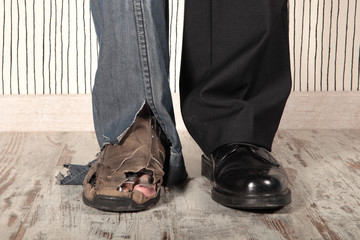
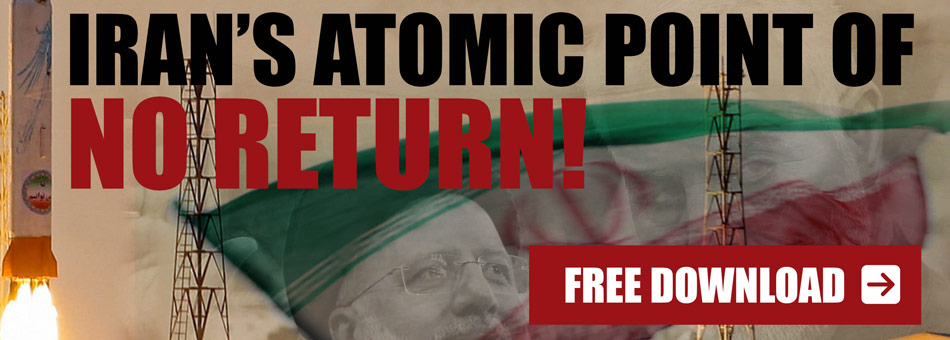



0 Comments